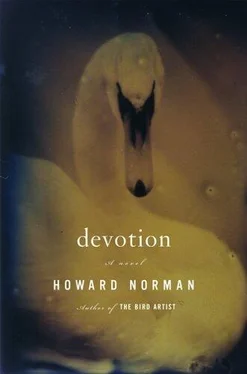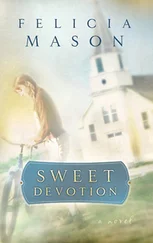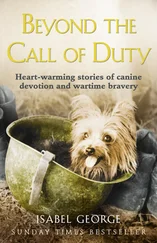“Just drunk as a skunk,” she said.
“Where’s the swans?”
“The pond. Where else would they be?”
“Any get into barbed wire?”
“What are you talking about?”
Naomi managed to hoist David to his feet. With his arm slung around her shoulder, David leaning heavily into her, too woozy to help much, Naomi maneuvered him in fits and starts to the guesthouse. She kicked open the screen door and with great effort got David into the bedroom. She let him fall face-down on the unmade bed and tilted his head so he could breathe. Naomi went into the kitchen, put on coffee and returned to the bedroom. David was now asleep, snoring like a walrus, but suddenly touched his blood-dried nose, muttering, “Dr. Steenhagen, Dr. Steenhagen.” Naomi had no idea whom he referred to, seeing as there was no Dr. Steenhagen in that part of Nova Scotia. She stood there looking at him for a few minutes. She heard the coffee drip. “Oh, what the hell,” she finally said. She rolled David onto his back, unbuckled his belt, unbuttoned his shorts, lowered the zipper, slid off the shorts and tossed them into the wicker hamper in the corner, already brimming with rumpled clothes. David wore boxer shorts with a checkerboard design, with black and red checkers on the squares; they’d been a gift from Maggie.
Naomi was about to strip off David’s splotched T-shirt when she heard, “You don’t mind if I have a cup of coffee, do you? I haven’t had one in months.” She turned to find William leaning against the doorframe, wearing his robe, pajamas and bedroom slippers.
“I’ve dragged this poor slob of a son-in-law of yours in here and put him to bed, as you can see,” Naomi said. “I probably should have shot him up with something.”
“I thought human beings were out of your jurisdiction, Naomi. Professionally speaking.”
“Still, I could have put David Kozol here out of his misery.”
“Don’t do him any favors, eh?”
“I can only imagine how you feel about him, William.”
Despite the heat and mugginess, Naomi judged it more seemly to cover David with a blanket, which she did.
“A man who doesn’t have the slightest notion of how to handle life,” William said. “That’s how I feel about him. You didn’t rescue him from trying to drown himself in the pond, did you? I wouldn’t be able to forgive that.”
“He was asleep next to the pen.”
“Jesus, no kidding. That’s something, isn’t it.”
“The swans were walking all over him. One by one. Like happy schoolkids stepping over a dead crossing guard.”
“Dead-drunk crossing guard, shirking his duties and punished by swans for it. That’s got a nice ring to it.”
“Yes it does. Well, I’ve got an appointment in Economy.”
“Let’s have a cup of coffee together first. It smells good.”
“What about Sleeping Beauty there?”
“Let him sleep it off. Other than this pitiful display, I have to admit, Naomi, he’s been dedicated to those swans. I have to admit that.”
Naomi and William went into the kitchen. Naomi poured two cups of coffee, set them on the table. “Take anything in it?”
“Usually sugar, but I’ll pass.”
They talked for a few moments. Then William reached out and closed Manuscript of a Country Doctor, which David had left on the table. “Laying a book open like that stresses the binding,” he said. “My good wife Janice would have protested.” He held the bookmark up for Naomi to see. “David Kozol stole this from the library.”
“You might better think ‘borrowed,’ William.”
“I’m returning it to its proper place.” He slipped the bookmark into the pocket of his robe.
They sat drinking coffee, not talking. Naomi washed out the cups, placing them in the plastic drying rack. “Let’s get you back to the house, William,” she said.
“There’s a morning MovieTime movie on. Some pirate story with William Bendix.” He did an imitation of a pirate: “Arr, Arr, Arr, me buckos.”
“Not this morning, thanks. I’ve got that house call.”
William’s voice was scratchy. “Now there’s a B actor if there ever was one, William Bendix. He’s got that spot in the alphabet all sewed up, you ask me.”
“Never heard of William Bendix, I’m afraid.”
“It’s not important.”
William got up from the table. Naomi locked her arm in his. As they started for the screen door, William said, “I thought before I heard David Kozol say ‘barbed wire’ in his sleep. Could that be right? I don’t know why he’d be concerned about that. I cleared every piece of it over a year ago.”
“People just say things in sleep.”
On the porch Naomi noticed William smiling to himself. “What’s so entertaining?” she said.
“Nothing, really. Except, I was recalling a night Janice woke me up. She said I’d said a name in my sleep, but she wouldn’t tell me what name, only that she didn’t like it. I said don’t take it personally. She jumped right on that, though. She felt the opposite, that it’s what a husband says in sleep that should be taken most personally of all. Because they can’t help who they dream about. And if you don’t inform a husband whose name he said in sleep, he can’t make excuses. In a way, the wife then owns the secret.”
On the grass, they saw dozens of night-woven spider webs beaded and glistening with dew. There were crows by the pond. “Funny thing,” William said as they continued toward the main house. “Some mornings I feel like I’m still broken inside. From that taxicab. It’s hard to tell the difference between actually being broken and the memory of it.”
MAGGIE MADE three visits in August. That month, too, David took a number of photographs; most were still lifes through rainy windows — so obvious. There were almost daily cloudbursts, lasting only minutes, but otherwise the drought continued. He’d photographed the swans, the elevated black well-cap amongst begonias in the garden, an archipelago of moss on a particularly wide boulder atop the stone wall near the guesthouse. He’d constructed a makeshift darkroom in a small outbuilding. The whole setup — bins, trays, chemicals, paper, enlarger — cost him $1,155. A hose running from the guesthouse provided water. Yet when he appraised the first contact sheets, he recognized the familiar lack of originality, took it harder than expected, threw out the negatives, every last one, stuffed them in the garbage.
Around seven o’clock on the thirtieth, David walked to the pond. He’d allowed the swans to stay on the water, such a disgustingly humid night. He stripped off his shorts, boxer shorts, T-shirt, setting them on the ground, then waded in. The water was slightly brackish from the accumulated heat of June, July and August. He felt the slickness and slope of the hard-packed clay bottom. Up to his chest in water, he stretched out, performed a quick breaststroke, reversed direction, sidestroked back to where he stood again. And that was all, really, he wanted. To gain footing. To hold still. It was a peaceful moment. The slight beaded chill on his skin. The ineluctable strangeness of swimming with swans.
He heard a bass voice originating from the direction of the tree-lined drive leading out to Route 2. It was a car radio; he not only recalled the tide, “Duke of Earl,” but the singer, Gene Chandler, the Duke of Earl himself. The pulsing refrain, as if Chandler had an amplifier held to his heart as he implored his great love to be his Duchess, the repetition of the word “Duke” two, three, four times in a row at different points in the song, returned with such vivid immediacy that all intervening time between 1962, when the novelty song was popular, and the present was erased. David had always loved that song, “Duke of Earl.” When he’d first heard it at age nine, he’d conjectured that the Duke of Earl was an actual figure out of history, and tried to find Earl on a map of England in the big atlas his mother kept in the living room. No luck there.
Читать дальше












